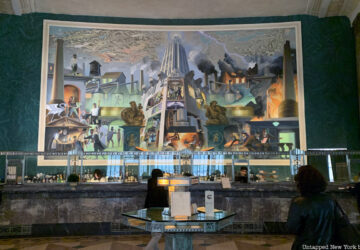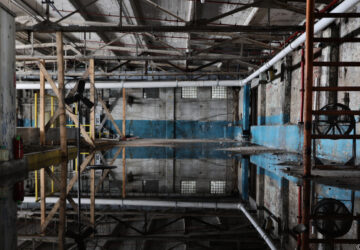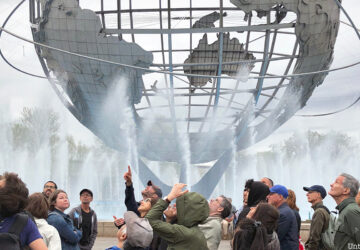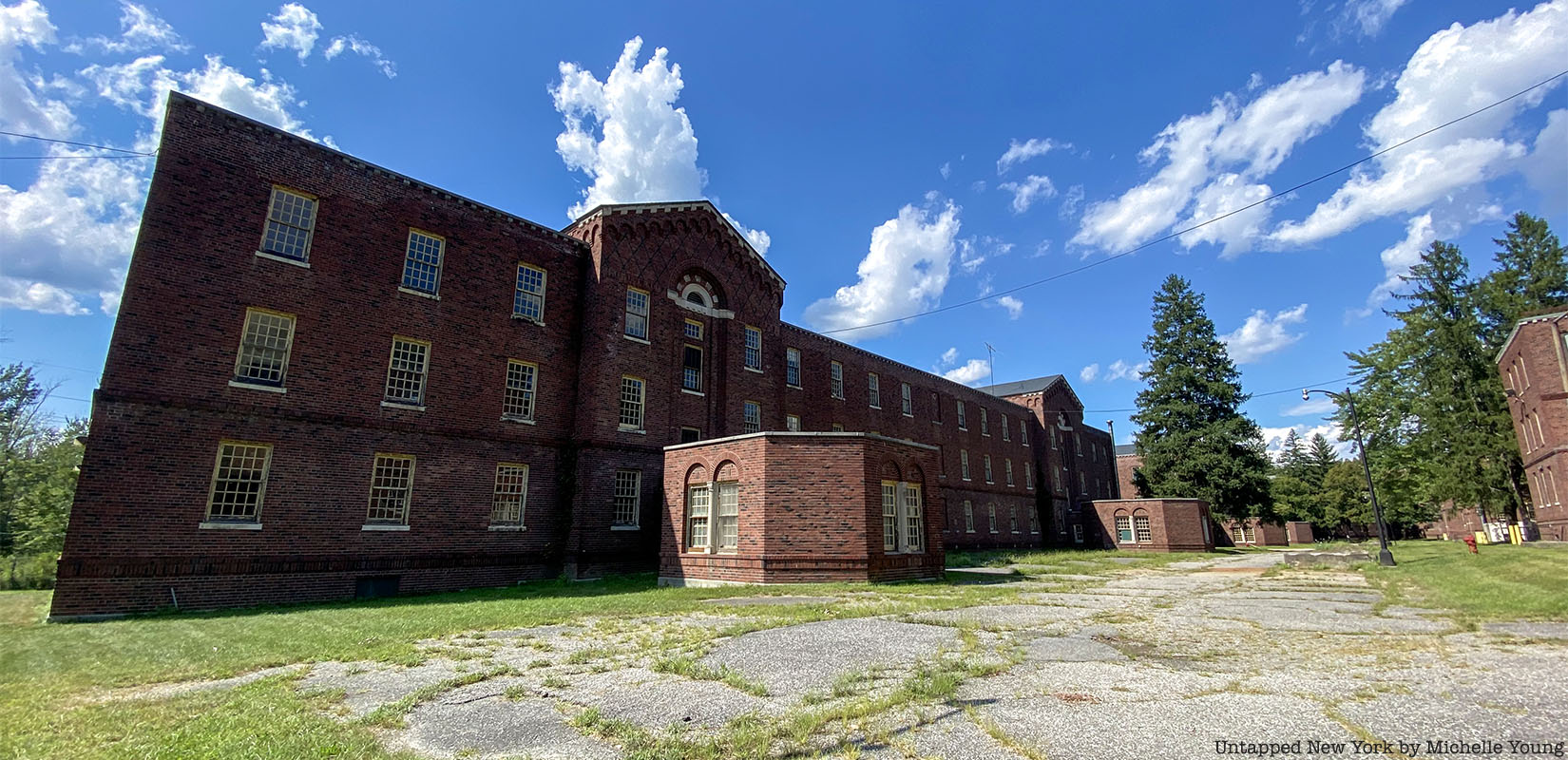The Harlem Valley Psychiatric Center is located about 70 miles north of Manhattan in the heart of Dutchess County. The abandoned former mental hospital remains a curious relic of an earlier era. Many still sit abandoned throughout New York State or have been demolished, but this is one of the few that have been repurposed — at least partially. It’s also conveniently located along the Metro-North line, on a stop that was once called the Harlem Valley-State Hospital station and more recently rechristened as Harlem Valley-Wingdale.
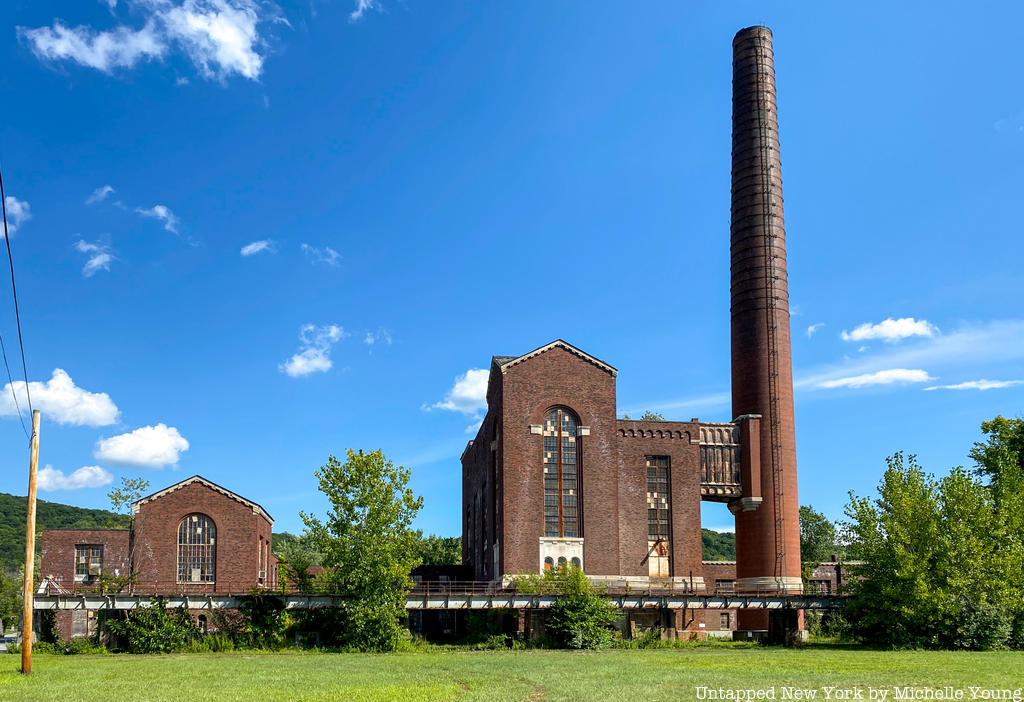
The Harlem Valley Psychiatric Center opened in 1924 as the Harlem Valley State Hospital. Like most other hospital facilities of its type, it was designed to be quite self-sufficient. The nearly 900-acre property contained a power plant, dairy farm with ice cream parlor, bakery, bowling alley, a stained-glass chapel, a cemetery, and more. Much of it was connected by tunnels, a design feature common to many campus-style hospital complexes. There was even a golf course, designed by golfer and course designer Donald Ross in 1928 that was used by the doctors for recreation. It is said that the doctors would sometimes ask “well-behaved patients” to serve as caddies. With 5,000 employees, and an equal number of patients, and eighty buildings scattered throughout the property, the Harlem Valley Psychiatric Center was very much like a small town — apart from the fact that it was actively experimenting with and using new psychological therapies including lobotomy and electro-shock therapy.
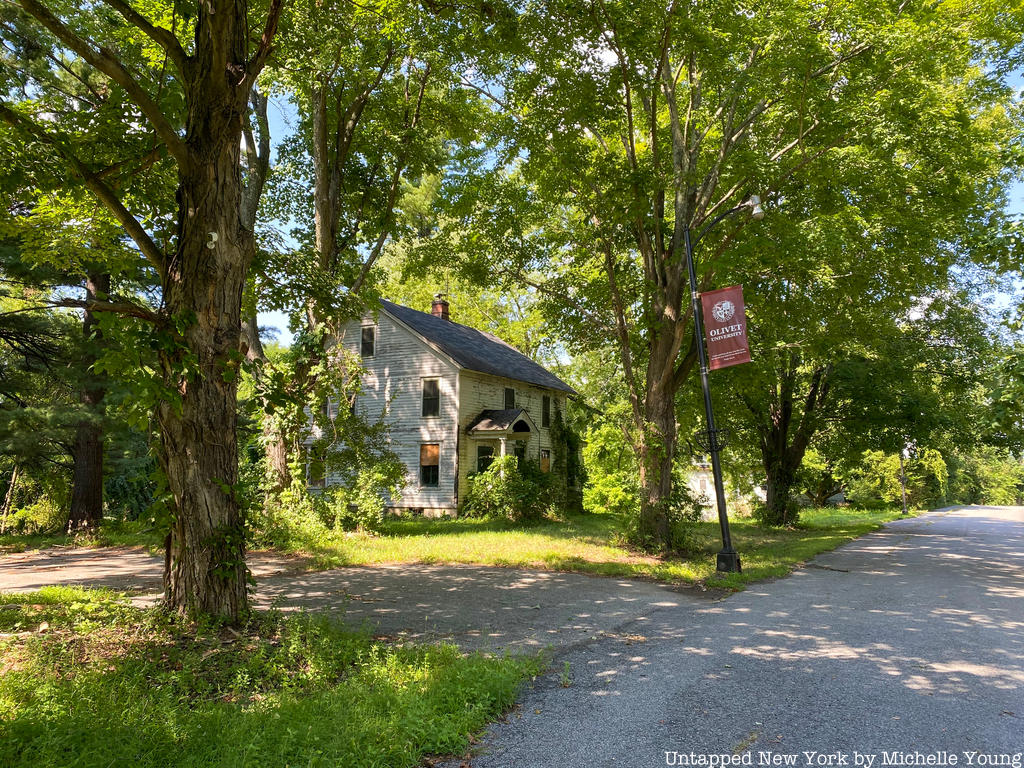 Houses like these were typically built for doctors and nurses on psychiatric hospitals
Houses like these were typically built for doctors and nurses on psychiatric hospitals
The Harlem Valley Psychiatric Center closed in 1994. A shift in philosophy, assisted by new drugs on the market, favored rehabilitation of mental health patients within society rather sequestered in rural institutions. New York State embarked on a mass sell-off of its psychiatric hospitals. Harlem Valley sat empty for almost ten years, but was purchased in 2003 by the Benjamin Companies based on Long Island which hoped to redevelop it as a mixed-use retail and housing development. It remained empty for another decade, while the Benjamin Companies supposedly spent over $20 million in legal fees, and engineering and environmental costs. The recession put an end to their plans. Although a 2013 valuation by the county put the value of the property at just $2.3 million, a new buyer was willing to pay far more for it.
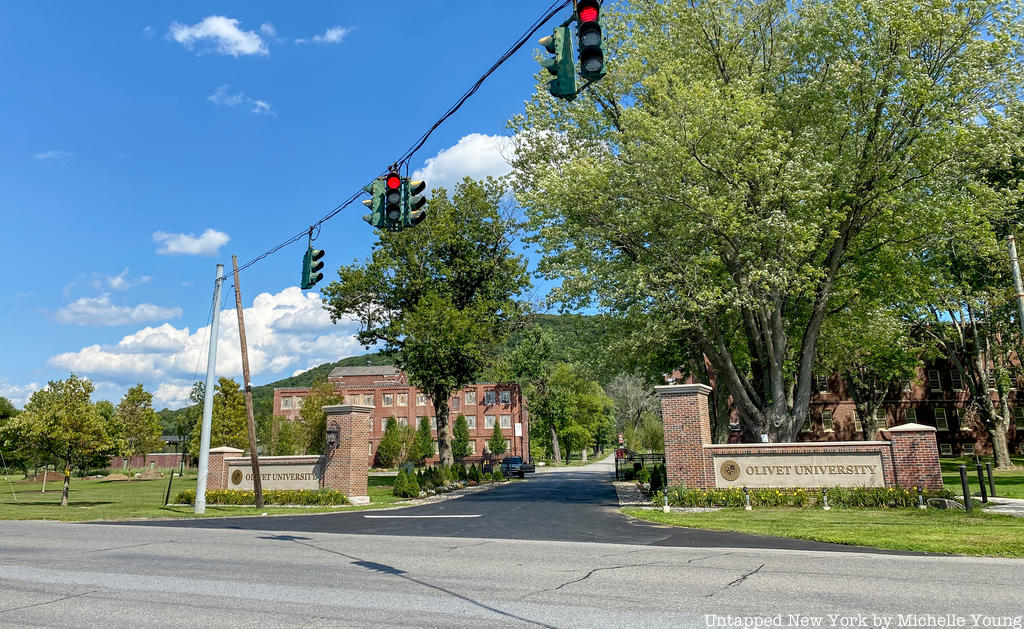 New entrance for Olivet University in Wingdale
New entrance for Olivet University in Wingdale
Enter Olivet University, an evangelical organization from California with a controversial reputation, founded by Korean pastor David Jang. In 2013, Olivet, which previously had campuses in San Francisco and New Mexico, purchased 503 acres of the former psychiatric hospital on the east side of the Metro-North station for $20 million, and an option to buy the remaining property. Jang is said to have ties with the Reverend Sun Myung Moon (whose followers have been nicknamed “Moonies”) and had taught at one of Moon’s seminaries. The New York Times, citing a piece in Christianity Today, writes that “some of the Dr. Jang’s closest followers seemed to believe that Dr. Jang was a messiah-like figure; and that he did not directly contradict that belief.” Despite these questions, the town of Dover seemed to welcome Olivet, with both residents and town administrators looking forward to repurposing Harlem Valley Psychiatric Center, which had deteriorated and become overgrown over the preceding two decades. In fact, it had become quite the urban explorer playground.
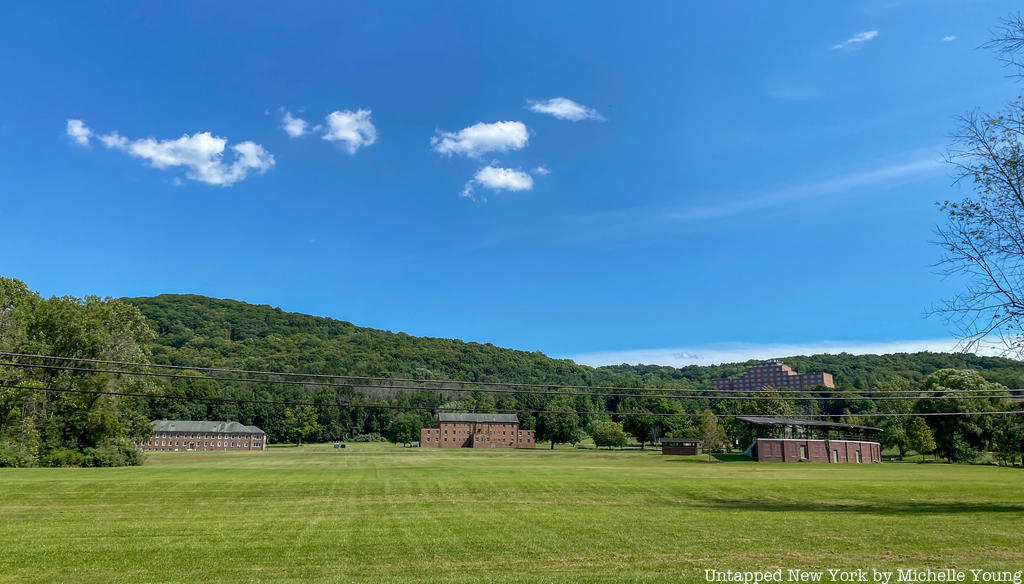 Soccer field, buildings and a former hospital building looming in the hills
Soccer field, buildings and a former hospital building looming in the hills
Controversy continued to dodge Olivet University in recent years, with the Department of Labor fining Olivet Management $700,000 in 2016 for unlicensed asbestos cleanup and exposing workers to unsafe levels of asbestos and lead. Earlier this year, Olivet University and the former owner of Newsweek plead guilty to a $35 million money laundering scheme that involved the use of funds from fraudulent loans to purchase the Hudson Valley Psychiatric Center and to finance publications including Newsweek that were owned by IBT Media, a media group founded by followers of David Jang. This year, it was reported that both Olivet University and Newsweek received Paycheck Protection Program loans ($500,000 for Olivet and $350,000 for Newsweek) despite the stipulation that business could not have been involved in fraud in the preceding five years. The university countered that no current owners/board members of Olivet had been convicted of a felony, as they had already left the company.
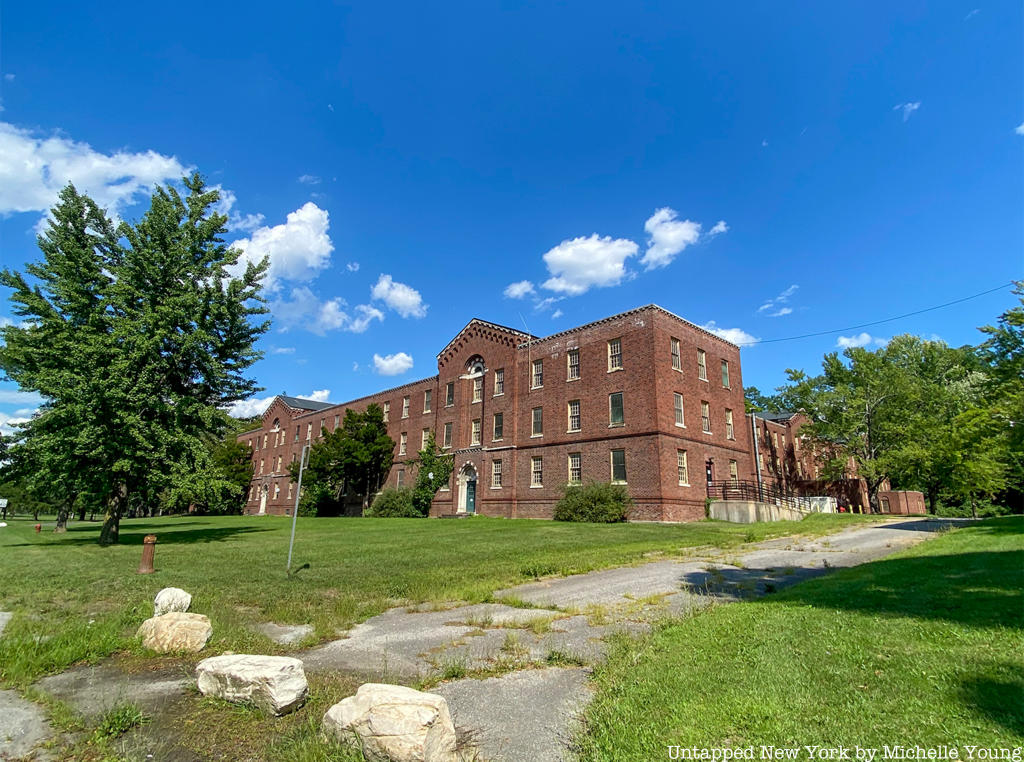
Today, the former abandoned psychiatric hospital has something of a split personality. An entrance across from the Metro-North station is newly paved with an entrance gate and security car. Next to it, there’s a well-maintained open area with a soccer field. A central building along the road is renovated, with another Olivet University sign out front and a flagpole. Behind, one assumes some of the buildings are used for the educational activities of Olivet University, which focuses on theology but also offers courses in more layman’s fields, including business, IT, journalism, graphic design and music. We did not see a single person on the campus besides security, although it is summer and we are amidst the coronavirus pandemic.
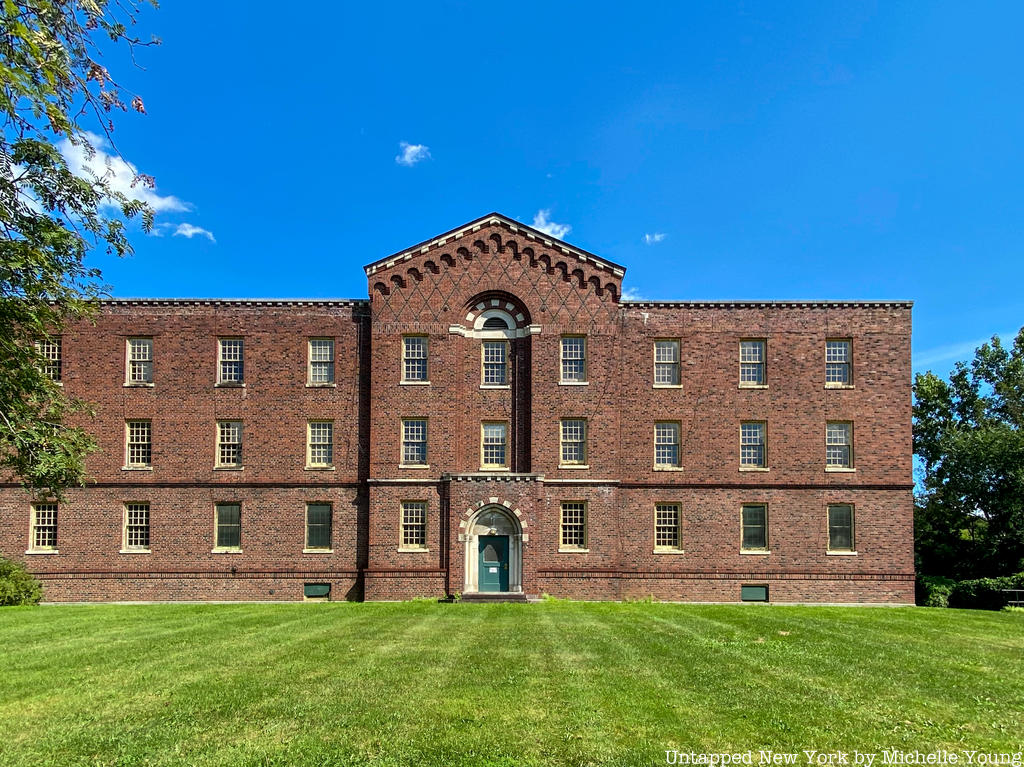
As you go further north along Route 22, it’s clear that those buildings are not occupied nor have been restored, although the ivy has been removed from the facades and the grass is regularly mowed. The buildings have some distinctive architectural details with Gothic, Romanesque and Moorish influences. A former entrance on the western side of the property is blocked off now, but you can see several abandoned wooden homes and more institutional buildings from that perspective.
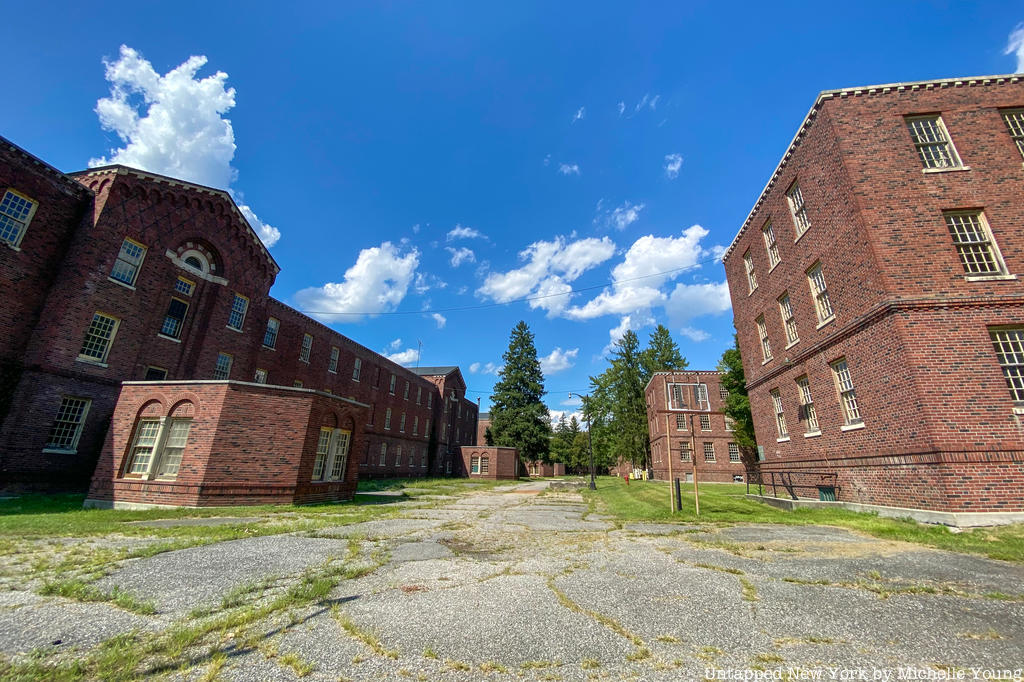
On the other side of the Metro North station, the old golf course has been renamed Olivet University Golf Club and according to its website, is a “semi private golf course of the Olivet University and Olivet Academy’s athletic program.” This, along with a sign that says Private Road, suggests that Olivet has utilized its option to purchase the property on the other side of the Metro-North station. The abandoned power plant buildings loom over the station platforms. Past the golf club are the abandoned remains of the former farm.
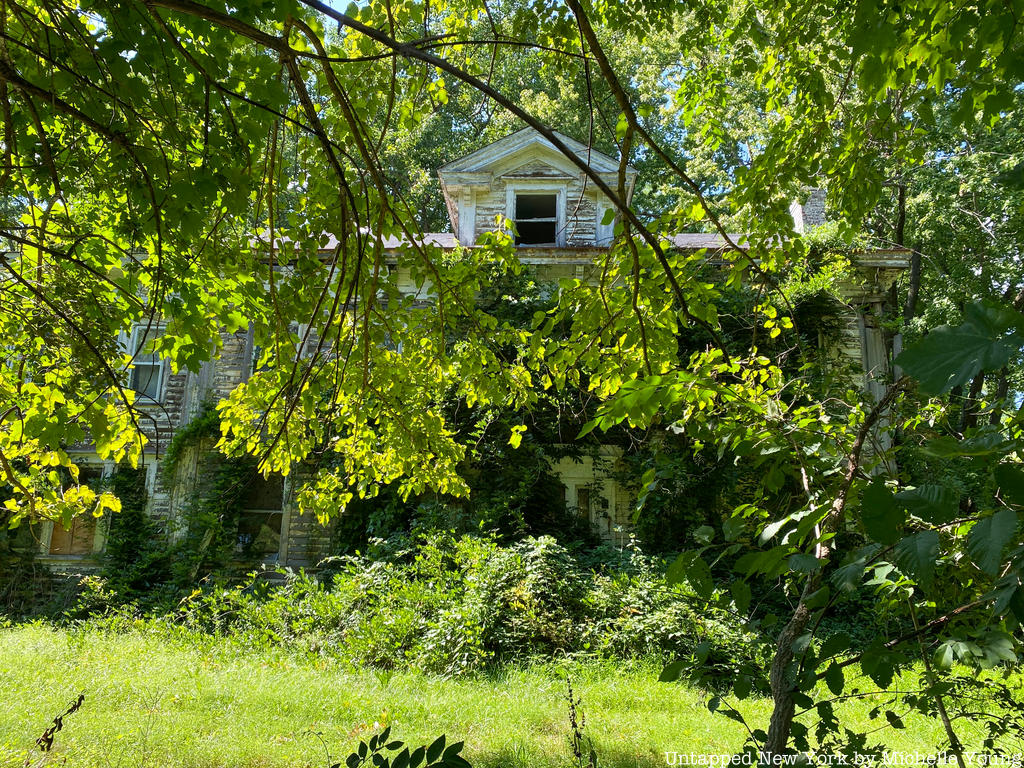
Visiting the former Harlem Valley Psychiatric Center is an easy trip up Metro-North and you can see many buildings from Route 22. It seems there is much more development to come for the former hospital, whether through Olivet University or a future party down the road. The property is certainly large enough for future subdivision and development. Only time will tell.
Next, check out 10 abandoned psychiatric hospitals in and around NYC.
